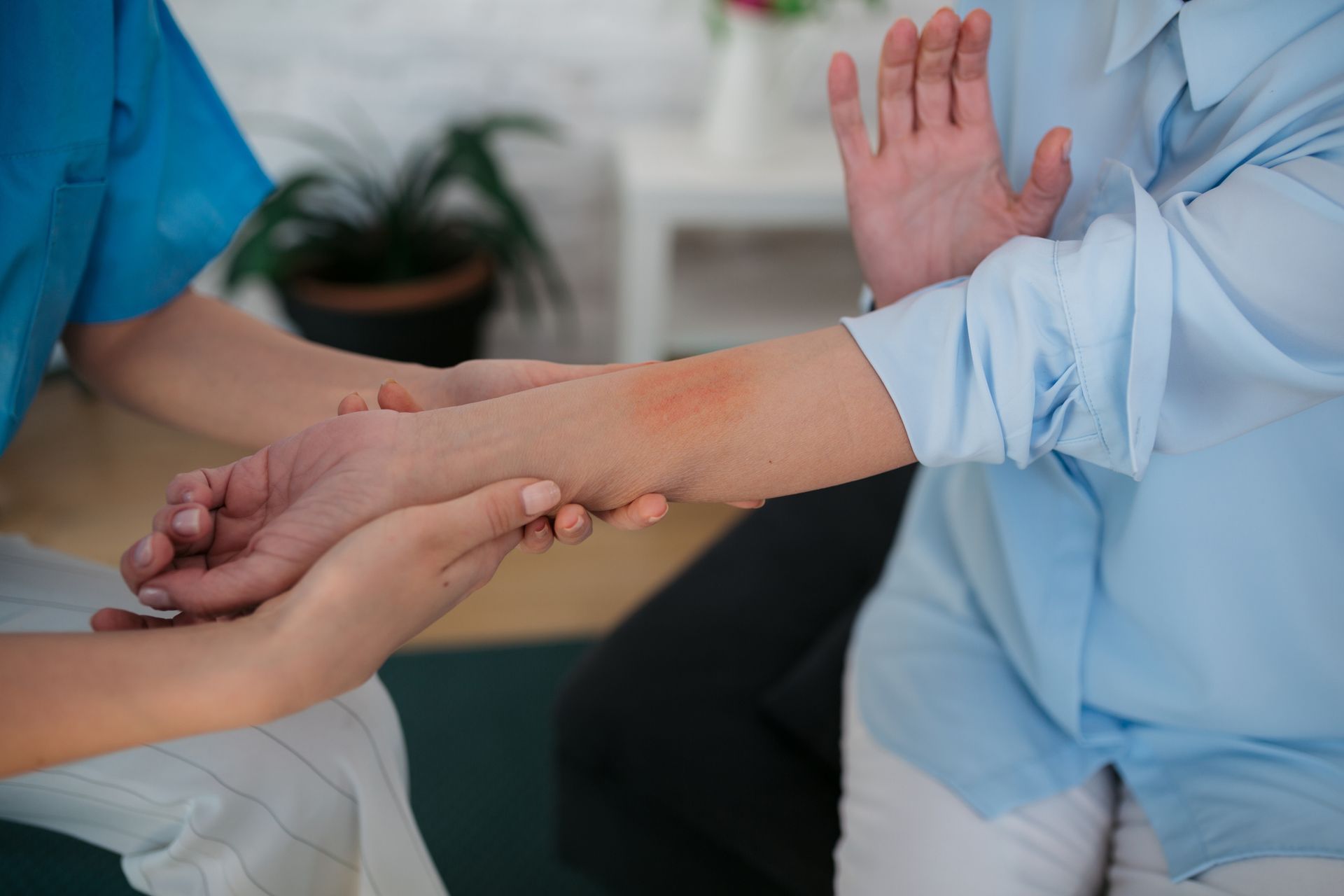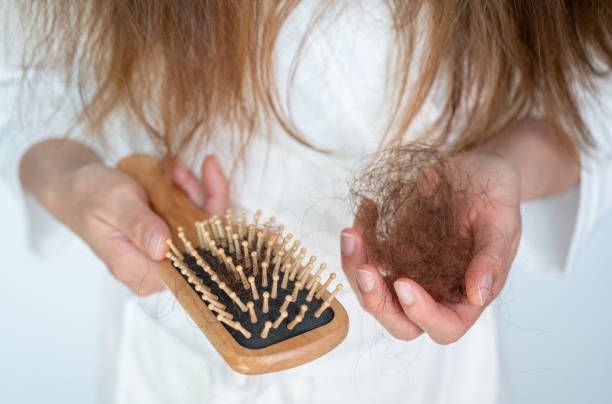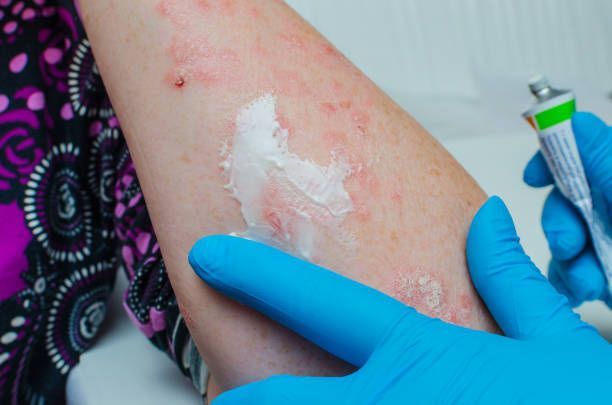
As temperatures rise and sunny days grow more frequent, many people love to go outdoors and enjoy their favorite activities. Unfortunately, some individuals may find their time in the sun less than enjoyable due to a rare and irritating skin reaction known as solar urticaria. If you experience mysterious rashes whenever you experience any degree of sun exposure, you may suffer from solar urticaria. Fortunately, you can fight back against this frustrating issue once you know more about the condition’s characteristics and management strategies. Start by absorbing the following four key points. 1. Solar Urticaria Involves an Allergic Reaction When you think of allergies, you probably envision reactions to pollen, chemicals, foods, pet dander, and other substances that the immune system misidentifies as threats. The immune system responds to these substances by producing histamine and antibodies to attack them, creating allergy symptoms in the process. In the case of solar urticaria, the immune system reacts abnormally to your own skin cells when those cells receive sunlight. For reasons dermatologists don’t completely understand, the sunlight causes the skin’s mast cells to set off an immune system response, resulting in an allergic reaction. 2. Solar Urticaria Causes Rash-Like Symptoms Solar urticaria occurs more commonly on parts of your skin that are exposed to the sun, either through direct exposure or through thin clothing. Common symptoms include tiny, itchy, red bumps that may form into a larger cluster of hives. The resulting rash may also hurt, bleed, or crust. Thankfully, most bouts of solar urticaria fade away without leaving any scars after you get out of the sun, usually within 24 hours or less. However, extreme cases of solar urticaria can cause longer-lasting symptoms, such as nausea, fatigue, breathing difficulties, or even a dangerous condition called anaphylaxis. 3. Diagnostic Testing Can Identify Solar Urticaria You might confuse the signs of solar urticaria with those of other skin problems such as heat rashes, especially if they occur on warm, sunny days. However, solar urticaria only develops in sun-exposed skin, while a heat rash more commonly develops in areas that don’t receive sun, such as skin folds where heat and sweat accumulate. Since solar urticaria can closely resemble other kinds of allergic reactions, you should consult a dermatologist to confirm the cause of your symptoms. Your dermatologist may diagnose solar urticaria based on your medical history and recent sun exposure. However, testing your skin’s reactions under a UV lamp can confirm the diagnosis. 4. Treatment and Preventative Care Can Ease Solar Urticaria Even if your solar urticaria symptoms resolve on their own, you may still experience discomfort and embarrassment during an outbreak. To ease your symptoms, your dermatologist may prescribe calamine lotion, oral antihistamines, corticosteroids, and/or an antimalarial medication called hydroxychloroquine. If you tend to get solar urticaria in the summer, your dermatologist may also recommend that you try to desensitize your skin to sunlight during the spring months. This process involves regular sessions of exposure to an ultraviolet sun lamp. However, you might need to repeat this regimen periodically if the benefits don’t last. You can’t necessarily hide from the sun all the time, but you can protect your skin against it. Wear UV-blocking clothes that cover as much skin as possible, along with a broad-brimmed hat and sunscreen that protects exposed skin from UV radiation. You can also try to avoid exposure by remaining indoors during peak sun hours. If your skin responds to sun exposure in a manner that suggests solar urticaria, get the professional evaluation and treatment you need at East Carolina Dermatology and Skin Surgery. Our dermatology team can pinpoint the underlying cause of your symptoms and help you manage the problem. Contact us today.
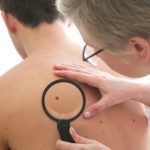
Your skin is the body’s primary defense against all forms of environmental elements and infections. But as it protects the body, it takes on continuous physical battering causing it to wear out. One primary irritant is the sun’s ultraviolet rays, and since it isn’t easy to avoid sunlight throughout your day, you should prioritize skincare. If you fail to take care of the skin, you can be affected by various forms of skin cancer, melanoma being one of them. Luckily, skin cancer can be seen and treated, but the key to successful treatments is early detection. Consider visiting a dermatologist when you see any of these early signs. 1. Red Skin Patches Seeing red patches of irritated skin on various parts of your body should signify something is wrong. If the patches are peeling off, appear like dry skin, or make you scratch your skin, you may have a form of skin cancer. The body’s immune system reacts to cancerous cells because they’re strange. This reaction leads to inflammation, redness, or scaling on the skin when you have patches. If the patches don’t clear for some time or appear to be increasing, have a dermatologist examine them to get a reliable diagnosis. This way, you will get treatment before your skin turns reddish. 2. Strange Sores If a skin patch pops up on your skin and it keeps growing larger by the day, you may need a skin specialist to check it out. This is often true if the sore color also changes or doesn’t go away no matter what you do. Compare the sores with any other kinds of skin growths and if they look different, inform your skin expert. The earlier they check it, the better, so the infection doesn’t spread. 3. Painless Lump One rare skin cancer you shouldn’t overlook is Merkel cell carcinoma. It’s severe and can spread fast throughout the body within a short period. The condition manifests on the skin as a painless lump that could be purple or red. The lumps often appear on the arms, legs, and face before spreading to other body parts. Since the lumps are painless, you may opt to overlook this skin problem. This is detrimental because the bumps grow fast and will spread. If you see these painless lumps, see a dermatologist for a check-up before the lumps grow larger. 4. Bleeding Moles Having noticeable moles on your skin is one thing, and it might not be a bother. However, if the moles start bleeding or oozing out, and you didn’t touch or pierce them, it could be a symptom of melanoma. Make sure you schedule an appointment with your dermatologist for an assessment. 5. Mole Regrowth Once you undergo a successful mole removal procedure, the area should heal adequately over time. You shouldn’t see any form of pigmentation spreading outside the scarred area. If you do, seek medical help from a skin specialist immediately. You should be apprehensive each time you undergo mole removal, as the cancerous cells may still find a way to change and progress. There is a high probability the treatment you got didn’t work. You’ll need advanced treatment to deal with the mole regrowth. Everyone needs to be constantly cautious about their skin’s health. Any strange or new growths or moles should raise alarms, mainly if you don’t get annual dermatological check-ups that catch skin conditions in advance. To know more details about skin cancer warning signs, or consult an expert about other skin health matters in detail, contact us at East Carolina Dermatology and Skin Surgery, PLLC, today. Our dermatologists have assisted thousands of patients in conquering different skin-cancer-related conditions and other skin diseases and they will help you too.

Rosacea is a common dermatological condition that causes red bumps, a burning sensation, sensitivity, and redness. Most patients with rosacea are adults between the ages of 30 and 50 , but the condition can impact anyone at any age. Although rosacea doesn’t have a cure, a dermatologist can help you reduce flare-ups and manage symptoms. What Causes Rosacea? The precise cause of rosacea is unknown. However, scientists have suggested some potential factors such as an overactive immune system, genes, and abnormalities in the blood vessels. Rosacea has numerous triggers. Food and Drinks Spicy and hot foods are among the top triggers of rosacea flare-ups. Hot peppers, hot sauces, and fiery spices trigger flushing and redness. If you love spicy foods, switch to milder seasonings and fresh herbs that add flavor, and reserve hot foods for rare occasions. Alcohol, mainly red and sparkling wine, dilates facial blood vessels and makes skin flush. Other rosacea flare-ups are hot beverages, milkshakes, ice cream, and other dairy-based foods. If you think that your diet causes flushing and redness, create a food diary to help you track your triggers. Stress The increased inflammation resulting from stress can worsen rosacea symptoms, and you may notice severe flare-ups when you encounter a stressful life event. Prioritize stress-management techniques like meditation, rest, and eating right if you have rosacea. Exercise Your skin overheats during intense workouts, resulting in rosacea flare-ups. However, don’t stop regular activity, but be mindful of how you exercise. For instance, exercise in evening or morning hours, rather than under the sun’s full glare. If you must go outside then, keep to shaded trails and stay hydrated. Another tip is to work out for shorter periods throughout the day rather than one long, intensive session. Low-intensity workouts in an air-conditioned space are great substitutes for demanding sessions that raise your body temperature. Also, take cool showers after workouts. Hot Baths and Saunas The hot bath you look forward to after a tiring day dilates skin vessels and can cause frequent rosacea flare-ups. Cold water is also not kind to rosacea skin, and your bath water should be close to your body temperature. Weather For many rosacea patients, a hot sunny day means flushing and redness. Cold weather isn’t better either, as pores clog more readily, while windy conditions worsen rosacea flare-ups. If you have rosacea, check the forecast and take the necessary precautions, like layering sunscreen on sunny days or piling on a jacket to avoid getting cold on windy days. How Is Rosacea Diagnosed? You may have rosacea if you experience persistent redness, flushing, small red bumps, or visible blood vessels. However, the expertise of a dermatologist is necessary to rule out other conditions like lupus and seborrheic dermatitis, which cause similar symptoms. Your dermatologist examines your skin, asks about your symptoms, and checks your medical history. How Can You Treat Rosacea? Rosacea symptoms differ between individuals, and your dermatologist will customize a treatment plan for you. If you have mild symptoms that don’t disturb you, the doctor can recommend gentle skincare products and lifestyle modifications. If you have severe rosacea symptoms, you can combine topical creams, antibacterial face washes, and antibiotic medication like tetracycline and doxycycline. Sun protection is a vital part of rosacea treatment, and dermatologists recommend sun avoidance, broad hats, and a thorough use of sunscreen. Also, treat your skin like it’s sensitive and avoid physical exfoliants, products loaded with fragrance, and cleansers with detergents or surfactants. Your dermatologist helps you identify your triggers to limit flare-ups and reduce the severity of rosacea symptoms. While rosacea has no cure, dermatological care can help you manage its symptoms. At East Carolina Dermatology and Skin Surgery, PLLC, we provide comprehensive treatment to people who suffer from rosacea and enhance their quality of life. Contact us today for prompt rosacea treatment.

The skin is the body’s largest organ, and its look and feel are easily affected by a myriad of factors that can cause the skin to dry out, which potentially makes it itchy, flaky, or rough. Dry skin is common among people of varying ages and can exhibit as just a patch on one part of your body or, in extreme cases, your entire body. Internal problems that cause dry skin include underlying conditions such as eczema or psoriasis. While external factors that may cause dry skin include weather, pollutants and irritants in the air, or a reaction to certain cosmetic products. The tips below will help you understand your skin and avoid unnecessary dryness. Constant Re-Hydration Water is essential for the proper functioning of all parts of our body, including the skin. Ensure you consume enough water and fluids to maintain the suppleness of your skin. When you spend time outdoors during summer, you may lose more water than usual through sweating. If you do not replace the lost water, dehydration may take a toll on your body and skin by damaging the skin’s natural moisture barrier and causing the skin to dry out. Regular Consumption of a Balanced Diet Foods rich in vitamins A, C, D, E, zinc, and selenium are suitable for dry skin. These foods replenish the skin cells to restore how the skin functions. If you consume a meal rich in these nutrients, you will help your skin restore its natural moisturizing barrier, which reduces water loss and improves your skin’s hydration. Certain foods and habits could also cause harm to your skin. For example, avoid sugary foods, baked products, and foods with high fat content. Stop regularly drinking alcohol and consuming tobacco. These foods and habits interfere with optimal skin functioning and will give you inelastic, dry, and inflamed skin. Careful Cosmetic Product Selection There are many cosmetic products on the market, including soaps, creams, lotions, and sprays, that promise to do one thing or another for your skin. Different products are also designed for different skin types and may not be one size fits all. You should always use the right products for your skin type. If you have dry skin, consult a dermatologist first to identify the cause. The dermatologist will prescribe products and a regimen that will be compatible with your skin and eliminate any offending products from your current regimen. Consistent Moisturizing Your skin becomes dry and itchy when it lacks sufficient moisture. Internal rehydration through drinking water is not enough. You should also protect the skin by using products such as moisturizers and lotions to keep the moisture locked into the skin. Moisturizing the skin helps protect the skin’s natural moisture barrier from getting damaged. When the natural barrier is already damaged, moisturizer fills in for the natural barrier. Apply a healthy amount of moisturizer or lotion regularly throughout the day to keep the skin moist. Limited Sun Time The sun releases ultraviolet (UV) rays that destroy skin cells when the skin gets exposed to the sun without protection. The UV rays destroy the outer layer of the skin and the natural moisture barrier responsible for retaining essential oils and moisture that ensure your skin stays moisturized. To prevent your skin from becoming dry and flaky, you should try to minimize exposure to the sun by limiting the time you spend under direct sunlight or by consistently applying sunscreen that prohibits UV rays from reaching your skin cells. Having dry skin can make you uncomfortable and even affect your appearance. Do not let the symptoms of dry skin take a toll on you in any way. Contact us at East Carolina Dermatology and Skin Surgery, PLLC, today for a proper examination and treatment of your dry skin.
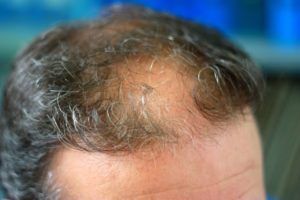
Hair loss results from the gradual destruction of hair follicles. These follicles become dormant and cannot produce new hair or lose their ability to grow. The gradual destruction of hair follicles over a long period can result in permanent hair loss. If you exhibit hair loss symptoms such as thinning hair, baldness, and frequent hair loss, you can try these three actions to restore your hair. 1. Talk to Your Doctor Premature hair loss can signify a severe physical or psychological disorder. You should visit a doctor if you exhibit hair loss as it may be a side effect of several conditions, including the following. Medications Many prescription medications cause premature hair loss. These include antidepressants, anti-anxiety drugs, hormones like birth control pills and menopause treatments, diabetes medications, seizure medications, and cardiac drugs. Check with your doctor before taking any new prescription if you have any concerns about your hair falling out or if you want to prevent it from doing so. Health Conditions You may have a condition that causes your body to produce fewer scalp cells or sebum (the oil produced by glands on the scalp). Also, alopecia often causes hair loss around the edges of the scalp where there aren’t many sebaceous glands. Diseases such as lupus, thyroid issues like hypothyroidism (low thyroid hormone levels), and diabetes can also cause hair loss. Psychological Conditions Stress can cause hair loss in several ways. It can cause the body to produce fewer scalp cells, it can cause the body to produce less sebum, and it can cause the body to produce more of the hormone cortisol. Other psychological conditions like trichotillomania cause people to pull their hair out. If you experience premature balding, you should speak with your doctor promptly. They can help to determine the underlying cause and recommend the best course of treatment. 2. Try a Topical Treatment If your doctor advises that your hair loss is from physical conditions, you can remedy your current status with topical treatments. Topical treatments can help reduce hair loss by keeping the scalp healthy and hydrated, stimulating blood flow to the hair follicles, and providing nutrients that promote hair growth. You can apply topical treatments directly to the scalp to reduce inflammation and stimulate hair growth. The most common topical treatments for hair loss are minoxidil, a topical vasodilator, and finasteride, an antiandrogen. Minoxidil is a topical vasodilator that can stimulate hair follicles and promote hair growth in both animal models and humans. It also reduces inflammation in patients with alopecia areata. Finasteride works by inhibiting 5-alpha-reductase, which converts testosterone into dihydrotestosterone (DHT). DHT is a potent male hormone that causes excessive thinning of hair on the scalp. Finasteride can help block the conversion of testosterone into DHT and prevent excessive hair thinning on the scalp. 3. Consider a Hair Transplant or Artificial Hair Piece A hair transplant may be a suitable option if other treatments are ineffective. This procedure involves hair taken from a healthy head area and transplanted to the affected area. Hair transplants restore hair loss by replacing the lost follicles with healthy ones from the head or face (micro grafts). Doctors use local anesthesia to reduce discomfort after surgery. However, you may experience swelling and bruises for a few days afterward. If you are uncomfortable with the idea of a hair transplant, you can try a wig or hairpiece. These artificial hair options can help to cover up the balding area and give you the appearance of a full head of hair. Hair loss generates physical and psychological concerns for individuals that undergo the process, especially for young people who still want to retain their physical appeal. While hair loss typically affects men via male pattern baldness, women can also face similar challenges, albeit at less severity than their male counterparts. Contact us at East Carolina Dermatology and Skin Surgery, PLLC, if you need professional advice or treatment for your hair loss.

Skin cancer is the most common type of cancer today, affecting about 20% of Americans at some point. With early diagnosis and treatment, even the deadliest skin cancer (melanoma) has a 99% survival rate when caught and treated early. Monthly skin exams, which you can easily perform at home, are the best way to check for skin cancer in its earliest stages. Fortunately, home skin exams are easier than you might think. Read on to learn how to evaluate your skin for signs of skin cancer in the convenience and privacy of your own home. Exam Prep Plan to perform your skin exam in a well-lit room with a large full-length mirror, and have a smaller hand-held mirror on hand as well. Have a chair in the room since you’ll probably sit down for at least part of the exam. You may also need a comb and hair dryer to properly examine your scalp. Exam Time The ideal time to perform a skin exam is just after a bath or shower since you’re already fully undressed, but you can do so whenever it’s convenient for you. Just make sure to allow plenty of time for a careful head-to-toe skin exam. Exam Process Skin exams cover all the skin on your body, so you’ll look at all of the following areas individually. Face Ears Neck Shoulders Chest (including under the breasts in women) Abdomen Genitals Back Buttocks Hands and arms Legs and feet Under nails Look for skin changes in these areas, focusing on just one area at a time. Check every area carefully, making note of anything unusual, such as: New bumps, moles, warts, or spots on your skin Sores that don’t heal Rough or flaky patches of skin Moles that change in appearance Skin cancer can also manifest in other ways, such as fingernail discoloration. If you can’t see the entire area you’re examining easily, use the handheld mirror to view it in the larger mirror (for example, your back) or sit down for a better look (for example, the bottoms of your feet). Use a comb or blow dryer (on a cool air setting) to move your hair section by section to get a close look at your scalp. It can be difficult to view your scalp in detail, but it’s important to take the time to search every part of it since skin cancer can hide under your hair. If you notice any possible warning signs of skin cancer, let your dermatologist know as soon as possible. In many cases, changes in your skin aren’t cancerous but could turn into cancer later. Seeing your dermatologist when you first notice the problem allows you to undergo preventive treatments to avoid cancer. Annual Skin Exams With a Dermatologist In addition to your monthly skin exams at home, The Skin Cancer Foundation recommends scheduling skin exams with an experienced dermatologist once a year if you have an increased risk of skin cancer. The risk factors include: Indoor tanning or excessive time in the sun History of sunburns Pale skin Blonde or red hair A large number of moles Personal or family history of skin cancer Older age (the average age of melanoma diagnosis is 65) Fortunately, you can control some of the most dangerous risk factors, including indoor tanning, excessive time in the sun, and sunburns. Knowing your risk factors and taking steps to control your sun exposure can help you make significant strides to prevent skin cancer. If you’re due for a professional skin exam or notice a potential issue during your home skin exam, East Carolina Dermatology and Skin Surgery, PLLC, is here to help. Call the office or contact us online today.

The skin is the largest organ in the body and shields your body from the sun’s rays — your skin needs adequate protection, too. Adding sunscreen to your daily routine can help you protect your skin. Sunscreen, also known as sunblock, protects the face and body by absorbing some of the sun’s ultraviolet (UV) rays. Generally, the higher the Sun Protection Factor (SPF), the better the sunscreen. Your skin will benefit from the daily use of sunscreen in the following ways. Promotes a More Even Skin Tone The uneven pigmentation of the skin refers to the discoloration or darkening of parts of the skin inconsistently. Often referred to as sunspots, these discolored areas range in color from tan to brown. This skin condition can develop from prolonged exposure to the sun. Skin imperfections may appear on the face, hands, and other areas of the body that regularly receive sun exposure. Sunscreen application prevents sun damage that causes discoloration and dark spots and leaves the wearer with a more even complexion. Prevents Premature Aging We all strive for healthy, radiant, and younger-looking skin. However, repeated exposure to the sun without adequate protection can damage your elastin, collagen, and skin cells. As a result, premature signs of aging — such as wrinkles, fine lines, and discoloration — appear. Photoaging is the effect of premature aging on the skin caused by prolonged sun damage. Using sunscreen can help you prevent chronic sun damage. A study found that sunscreen users under 55 are 24% less likely to develop aging signs than non-sunscreen users and occasional sunscreen users. Lowers Skin Cancer Risk Exposure to UV rays can cause your skin to lose its protective layer, leaving it vulnerable to a skin cancer known as Melanoma. You must apply sunscreen daily for cumulative protection over months and years. Researchers have shown that daily use of SPF 15 sunscreen lowers the risk of developing Squamous cell carcinoma by 40% and Melanoma by 50%. You can use a higher SPF to get even more protection. Wearing sunscreen can keep your skin looking young and healthy while protecting it from cancer. Prevents Sunburn Sunburns occur when the sun’s UV rays damage the DNA in the upper layer of skin cells. As a consequence, your cells try to fix the errors. If the skin cells experience too much UV exposure, the damage can be irreversible and the cells may die. To undo the damage, blood vessels dilate to increase blood flow and bring immune cells to the area. Red skin and the painful sensitivity of freshly sunburned skin are the results of the extra fluid and the swelling the fluid causes. Using sunscreen reduces your chances of sunburn by protecting your skin from harmful UV rays. Even on cool, cloudy days, always wear sunscreen. Reduces Inflammation Prolonged exposure to the sun and UV rays can cause severe redness and inflammation as part of skin damage. Daily sunscreen application reduces the risk of swelling caused by harmful rays. If you are prone to redness and have sensitive skin, ensure you never miss your sunscreen application. You can never be too young or old to care for your skin. Sunscreens, however, aren’t all created equal, and with so many options available, choosing a product can be challenging. Your local dermatologist can assist you with the selection of a product. On the other hand, if you have sun damage or skin spots that concern you, you should see a qualified professional as soon as possible. Contact us today if you need help selecting skin care products or if you experience any skin-related issues.
Call 252-633-4200 to schedule a consultation with our experienced dermatologists today.

